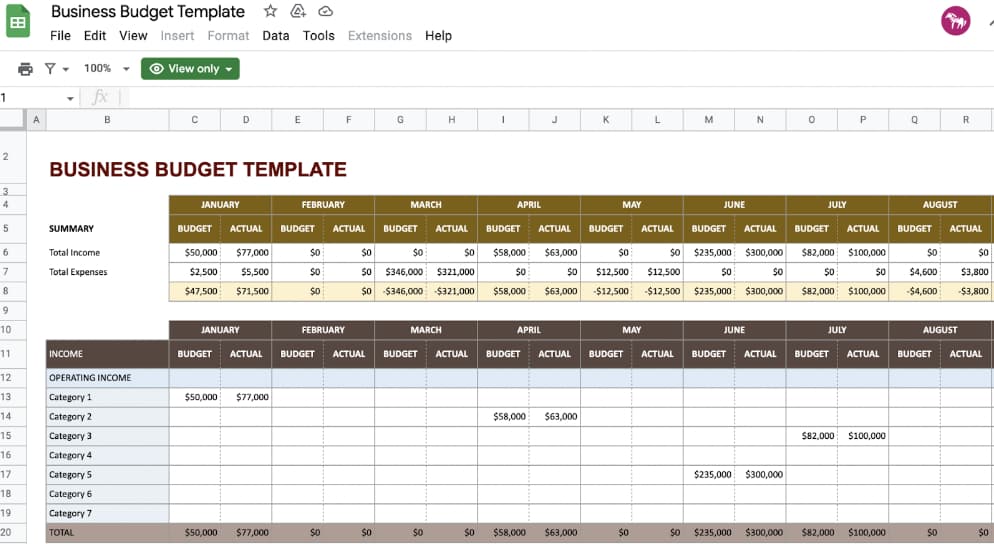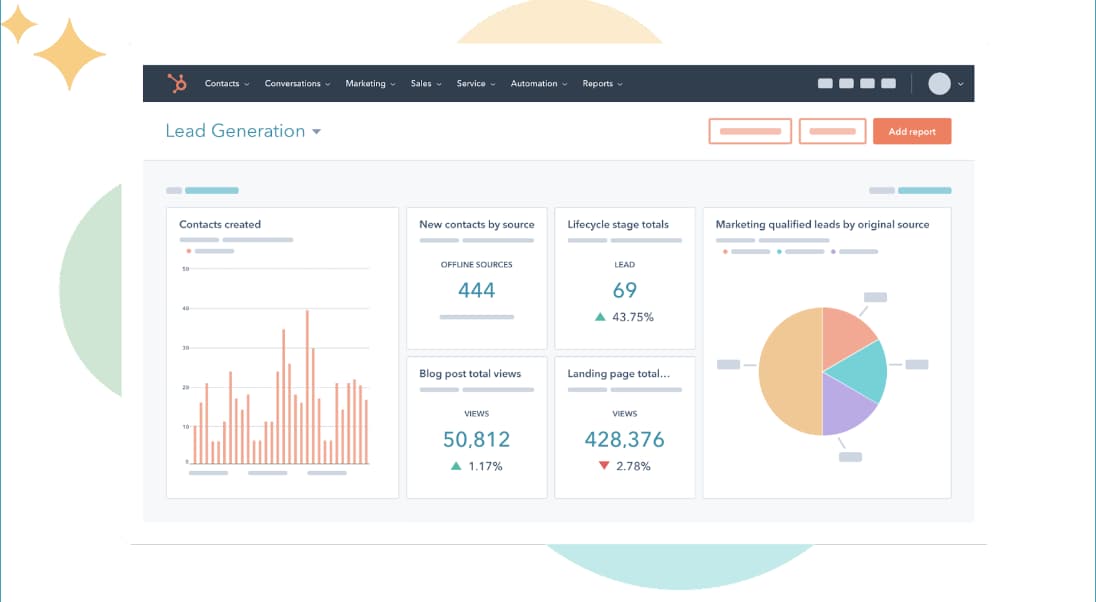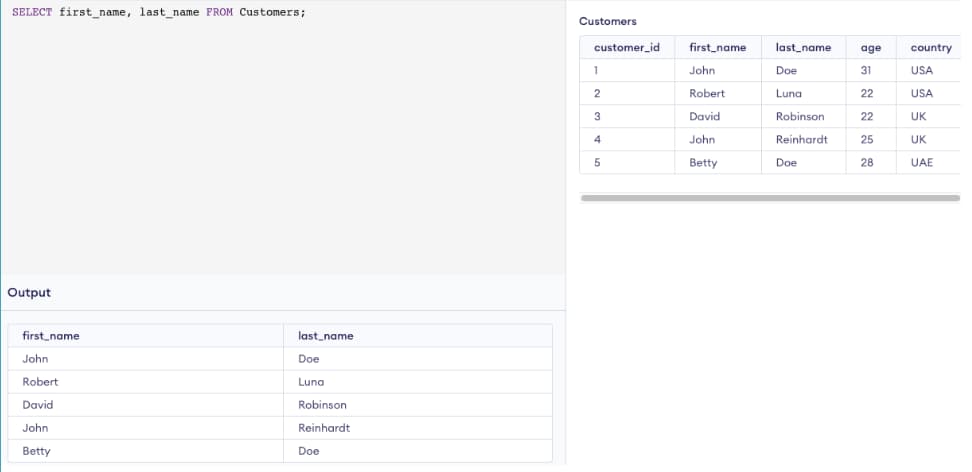In the case of knowledge administration, there are two primary choices — spreadsheets versus databases. Whereas each arrange info, every answer serves a definite objective.

On this submit, you’ll study the advantages of each databases and spreadsheets. Then, we’ll discover how one can select the perfect organizational system for your corporation.
Desk of Contents
Spreadsheets vs. Databases
Let’s begin with definitions.
- Spreadsheets are laptop applications that prepare knowledge in a sequence of rows and columns. Knowledge is saved in particular person cells of this digital doc. Spreadsheets are sometimes in comparison with digital ledgers.
- Databases collect info from exterior tables, as an alternative of storing knowledge in particular person cells. Databases even have a versatile construction, providing you with extra choices for storing and evaluating knowledge.
Databases provide a extra strong approach to work with relational knowledge, or knowledge linked throughout a number of tables. This additionally makes databases extra advanced than spreadsheets.
Even when each choices are constructed to ship efficient outcomes, the success of their implementation will rely on many elements, together with:
- The type of info you need to retailer.
- The quantity of information you want.
- How usually you entry this knowledge.
For instance, a person preserving monitor of duties and duties could have totally different wants than a giant firm with 1000’s of staff working in several areas.
Subsequent, we’ll dive into the advantages and downsides of every knowledge administration choice.
Spreadsheets: How do they work?
A spreadsheet is a digital ledger that helps customers arrange info in rows and columns. The intersection between rows and columns creates particular person cells that characterize a chunk of information, both numbers or textual content.
You may enter features, or math equations, that can help you manipulate this knowledge. This may be useful for managing budgets, calculating month-to-month funds, and preserving monitor of working hours. You can even simply seek for particular info throughout the tables.

Immediately, greater than 81% of companies use spreadsheets to construct their venture administration techniques, in line with Dartmouth’s Spreadsheet Engineering Analysis Undertaking. Microsoft Excel and Google Sheets are among the many hottest spreadsheet instruments.
The Benefits of Spreadsheets
Spreadsheets are widespread choices for smaller datasets, providing a straightforward approach to collect and manipulate knowledge. Your staff have probably labored with spreadsheets previously. In the event that they haven’t, there are lots of of assets that make coaching straightforward.
See different spreadsheet advantages under, or attain HubSpot’s deep dive for extra.
- Spreadsheets are low-cost to create. Your organization might have already got entry to Microsoft excel. If not, you should use Google Sheets free of charge together with your Google Account.
- Spreadsheets are low-code. Constructing a spreadsheet doesn’t require particular programming languages. You simply must know the language for mathematical features, which you’ll be able to simply discover on-line.
- As soon as created, spreadsheets are straightforward to replace and will be shared with totally different individuals. That is very true in Google Sheets, the place a number of individuals can edit a spreadsheet concurrently.
The Disadvantages of Spreadsheets
Whereas spreadsheets have many advantages, this knowledge administration answer might encounter limitations. That holds very true in case your staff works with giant, advanced datasets or relational knowledge.
Widespread disadvantages of cursing spreadsheets observe.
- Giant datasets or advanced formulation might trigger the spreadsheet to turn into sluggish and unresponsive. Spreadsheets are, due to this fact, finest fitted to small or medium-sized initiatives with comparatively easy knowledge constructions.
- All new spreadsheet info should be entered manually. Because of this, updating spreadsheets will be time-intensive.
- As your corporation grows, so will your datasets. Whereas spreadsheets play a useful position in your progress journey, they aren’t ample to retailer knowledge at scale.
In case you’re encountering these frequent challenges, it could be time to spend money on constructing a extra strong database. Subsequent, we’ll discover totally different use circumstances for databases.
Databases: How Do They Work?
A database is a program that makes use of particular languages to allow you to retailer and arrange knowledge in a structured method. Consider it like a submitting cupboard, the place you possibly can arrange your knowledge into folders and subfolders, after which kind it through the use of particular standards. For instance, a buyer relationship administration instrument (CRM), like Hubspot, is a kind of database.
A database works by storing info in a construction that’s manufactured from rows (referred to as “information”) and columns (referred to as “fields”). Fields will be something from text-based labels like “title” or “description” to numbers. Which will embody costs, percentages, and dates.
A database shouldn’t be solely a folder that shops knowledge however can also be software program that gives options to replace knowledge robotically. Upkeep would not require hours and hours of labor.

There are two primary forms of databases: relational databases (SQL) and non-relational databases (NoSQL).
Relational databases can help you seek for particular info with out having to fret about dropping knowledge within the course of. Relational databases cannot deal with as a lot knowledge as non-relational ones, as a result of they solely can retailer knowledge that’s formatted as tables.

Alt Textual content: database vs spreadsheet, relational database in SQL instance
IMG title: database-vs-spreadsheet-sql.png
Non-relational databases, often called NoSQL, are another choice. They’re just like relational databases, as they each present a straightforward search instrument that facilitates entry to info. Nonetheless, a NoSQL database gives totally different constructions that may accommodate extra knowledge without delay. This function makes it preferrred for large knowledge purposes and unstructured knowledge administration.
Benefits of Databases
Each SQL and NoSQL databases are perfect for storing giant quantities of knowledge. Listed here are different frequent advantages of utilizing a database.
- Knowledge will be up to date robotically. This will save your staff time, as handbook updates take hours. Moreover, automation reduces the possibility of human error.
- Databases can retailer info gathered from a number of areas. This may be particularly useful in the event you’re gathering buyer info from a couple of platform.
- Databases deal with relational knowledge, which creates the inspiration for automation. You may automate a lot of your knowledge assortment and manipulation long-term.
- Databases load quicker and take up much less cupboard space. Spreadsheets load each cell when the doc is in use, taking over extra of your laptop’s processing energy. In the meantime, databases solely load info that’s actively being accessed. This will increase your laptop’s effectivity.
- Databases are safe. You may simply determine which of your staff can change the database and which may solely view info. Login credentials additionally defend your info from outsiders.
Disadvantages of Databases
Whereas databases have massive advantages, they’re not the precise match for each staff or venture. Prices and coaching current two boundaries to database implementation. We’ll discover these challenges.
- Databases have greater prices. First, your staff must buy a database service. You might also must pay for extra implementation and upkeep — or rent a brand new staff member to supervise this course of.
- Databases require extra coaching to make use of. You’ll want specialised coding data to arrange your database and manipulate the data inside. In case you’re not conversant in what makes up a database (like tables, queries, and indexes), you may discover it laborious to create and handle one by your self.
- Databases are useful resource intensive for small knowledge units. When you have a small quantity of static knowledge, spreadsheets present a more cost effective choice.
Which must you use — spreadsheets or databases?
There’s no one-size-fits-all answer for knowledge administration. Your knowledge system will differ based mostly on the scale and complexity of your venture. Earlier than making your determination contemplate the next steps.
1. Consider your knowledge.
When selecting between spreadsheets and databases, assess the complexity of your knowledge. Easy textual content and numeric knowledge are good for spreadsheets. In the meantime, databases can deal with a wider vary of file varieties and sizes.
2. Contemplate your targets.
After inspecting your knowledge, assess your long-term targets. Are you seeking to automate processes to avoid wasting time? Do you need to create a easy organizational system anybody can use? Do you might have the price range to scale your knowledge answer, or are you wanting to save cash? Your solutions will influence your determination.
3. Decide your progress trajectory.
Simply because a spreadsheet meets your corporation’ wants at present, doesn’t essentially imply it would work at scale. Contemplate your progress trajectory to find out if a database is definitely worth the funding.
For instance, let’s say that you just’re operating a startup with a quickly rising shopper base. Maintaining monitor of your purchasers will be finished with a easy spreadsheet at present. Nonetheless, in six months, chances are you’ll outgrow this methodology.
It’s time to decide on.
Spreadsheets are nice for storing and manipulating smaller knowledge units. In case you’re in search of an answer that enables for advanced info and automation, you’ll need to go for a database.
In case you’re prepared for a sturdy knowledge administration answer, study extra about HubSpot’s CRM. Our instruments can assist your corporation retailer info at scale in order that your knowledge capabilities develop alongside your corporation.

